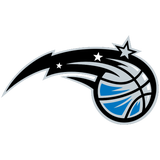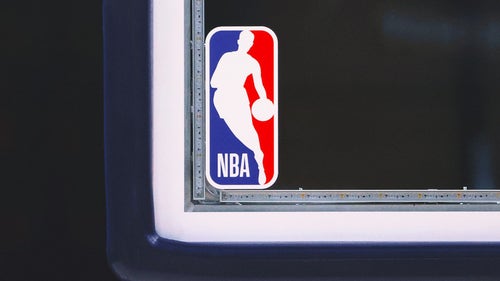
The Orlando Magic have no idea what they want to be
In five seasons since the Dwight Howard trade, the Orlando Magic have struggled to establish any sort of identity while they floundered in the NBA’s basement. And after yet another failed front office move, it’s fair to wonder whether the club’s future is any brighter now than it was in 2012 — and whether it’s time to move on from the architect responsible for the franchise’s flawed design.
On Tuesday, Magic general manager Rob Hennigan made his latest questionable transaction, sending starting power forward Serge Ibaka to Toronto in exchange for fifth-year swingman Terrence Ross and the lower of the Raptors’ two 2017 first-round picks.
In a vacuum, the swap was fine, if not especially or immediately helpful for a 21-36 Magic team that will likely miss the playoffs for a fifth straight season. A pending free agent, Ibaka was almost certainly not re-signing in Orlando, and in Ross, a former dunk contest champ who has two years left on his deal, the Magic received an athletic playmaker who has shown the potential to catch fire, as he did in a 51-point outburst against the Clippers in 2014.
Add to that the inherent value in any first-round pick — even a late-round selection, which this one will be — and you can understand why Orlando pulled the trigger. At the very least, it’s better than nothing.

Serge Ibaka
The bigger issue, instead, is that Hennigan, the team’s GM since 2012, has now cut bait with a recent acquisition at the trade deadline for the second straight year. And though the team has, to this point, stood behind its 34-year-old GM, you have to figure Hennigan won’t be casting the line that much longer if his moves keep failing to pan out.
Last season it was Tobias Harris who was shipped to Detroit for Ersan Ilyasova and Brandon Jennings’ expiring contract just seven months after agreeing to a four-year, $64 million deal to stay in Orlando. In addition, Hennigan also sent Channing Frye, the de facto prize of the Magic’s 2014 free-agent haul — if you can even call it that — to Cleveland in exchange for salary cap relief.
In Ibaka’s case, Orlando acquired the Thunder’s former third wheel on draft night, a June deal that sent Ilyasova, 2013 No. 2 pick Victor Oladipo and last year’s No. 11 pick, Domantas Sabonis, to Oklahoma City. And in subsequent weeks, there was hope, however slim, that Ibaka and free-agent signee Bismack Biyombo might serve as foundational defensive pillars under new head coach Frank Vogel, the team’s third in as many seasons.
Instead, the Magic have blocked exactly as many shots as last season (5.1 per game), have given up 111 points per game (and 113.4 per loss) during a 6-18 slide following a 15-18 start to the season and are on pace to lose more games this season than they did last season — the first in recent memory to leave Magic fans feeling anything that could resemble optimism with respect to the team’s direction.

Rob Hennigan and Victor Oladipo
Meanwhile, Oladipo, who signed a four-year, $84 million extension with the Thunder, has continued to thrive as a right-hand man to Russell Westbrook, and the 20-year-old Sabonis, the son of a Hall of Famer, has started every game for Oklahoma City this season while posting similar numbers to Biyombo, who signed a $72 million deal of his own in Orlando in July.
So we can establish that the original Ibaka deal was a flop, as there’s not a Magic fan alive who would have voted to trade Oladipo and the No. 11 pick in 2016 for Ross and a worse pick in 2017.
The same can also be said for the contracts given to Frye and Harris, the former of whom never panned out, with the latter never getting a chance to show he was worth more than his rookie deal. And though his time in Central Florida has been brief and his opportunities few, the early returns on Biyombo are making him look like a bigger waste of money by the day.
And those four are just the start when it comes to moves that never bore fruit. Several smaller signings also proved to be duds, as Jason Maxiell (two years, $5 million, now playing in Turkey's second division), Ben Gordon (two years, $9 million, now playing in the D-League) and Luke Ridnour (two years, $5.5 million, now retired) were all busts and were gone after just one season in Orlando.

Rob Hennigan
Same goes for the team’s luck with first-round draft picks, as well: Andrew Nicholson (No. 19, 2012) never amounted to more than a bit player in four years with the team; Aaron Gordon (No. 4, 2014) is an athletic freak who plays out of position and is best known for his dunk contest exploits; Elfrid Payton (No. 10, 2014, via trade) is an average point guard with no shooting touch; and Mario Hezonja (No. 5, 2015) has been relegated to the doghouse under two separate coaches.
Perhaps the only quantifiably good moves the Magic have made in recent seasons were the acquisition of Evan Fournier from Denver in 2014 and the inclusion of center Nikola Vucevic in the original Howard trade in 2012. But while Fournier and Vucevic have produced as expected for the Magic — and have been rewarded handsomely in the form of respective contract extensions — both fan favorites are much better suited as complementary pieces to a true superstar than as superstars themselves.
And at the end of the day, these failures ultimately fall at the feet of Hennigan, whose tenure has resulted in a roster full of pieces that don’t fit together on a bad team that responded to win-now pressure by getting worse.
As it stands, there’s no clear vision for who the Magic are or what they’re supposed to be — and in truth, there seemingly never has been. And while there’s always the chance that Ross could blossom into the next big thing or that the next draft could be the one that nets Orlando a true star and puts the Magic back on track, the better choice may just be to hand the reins to someone else.
It’s the least that Magic fans deserve.
You can follow Sam Gardner on Twitter or email him at samgardnerfox@gmail.com.






